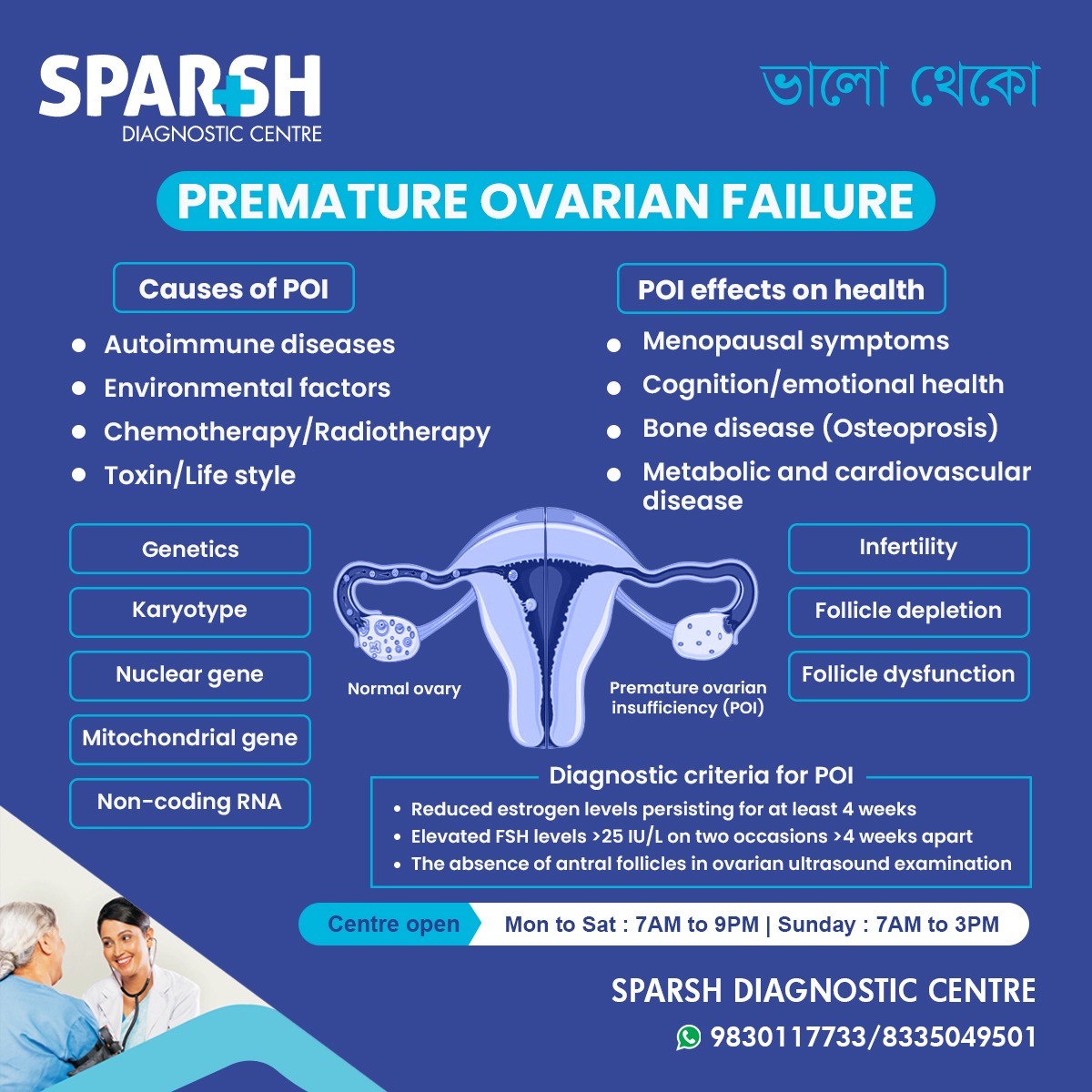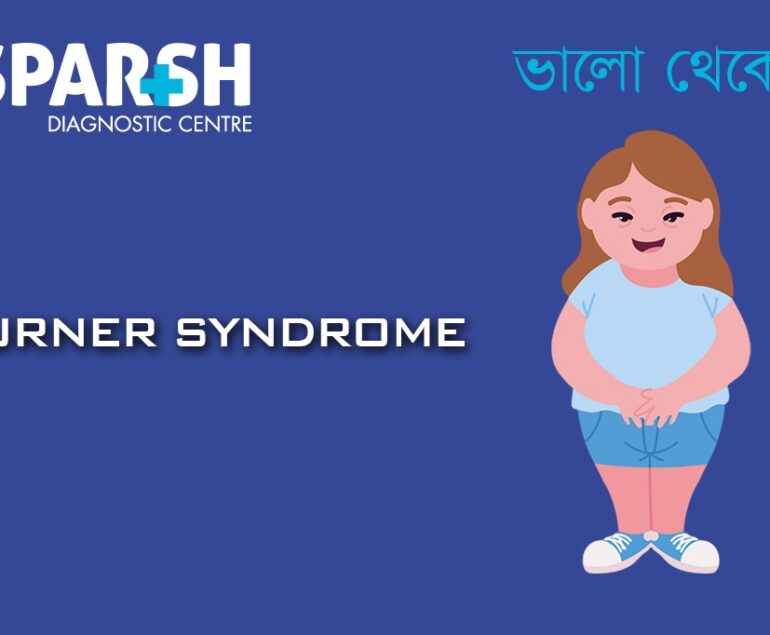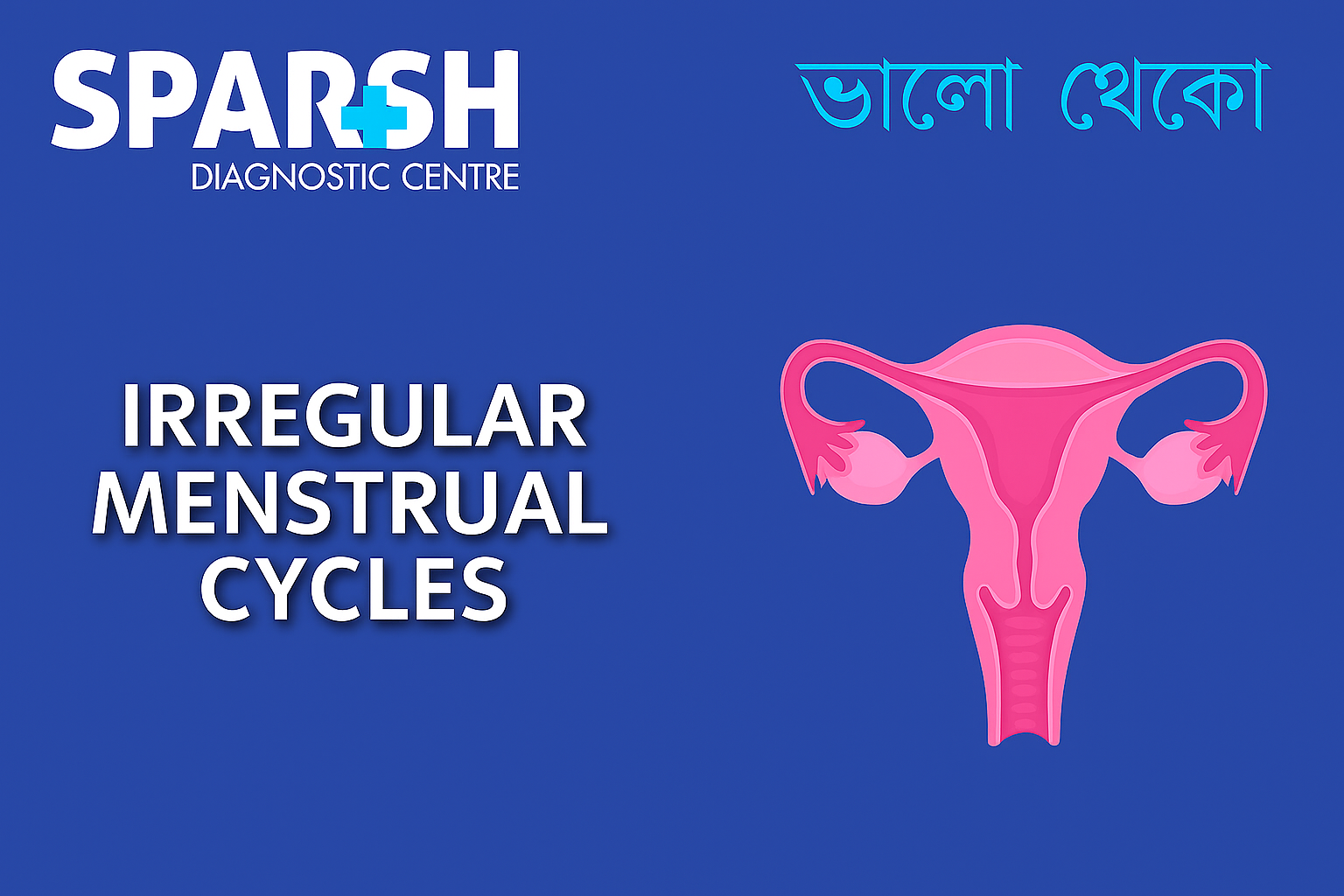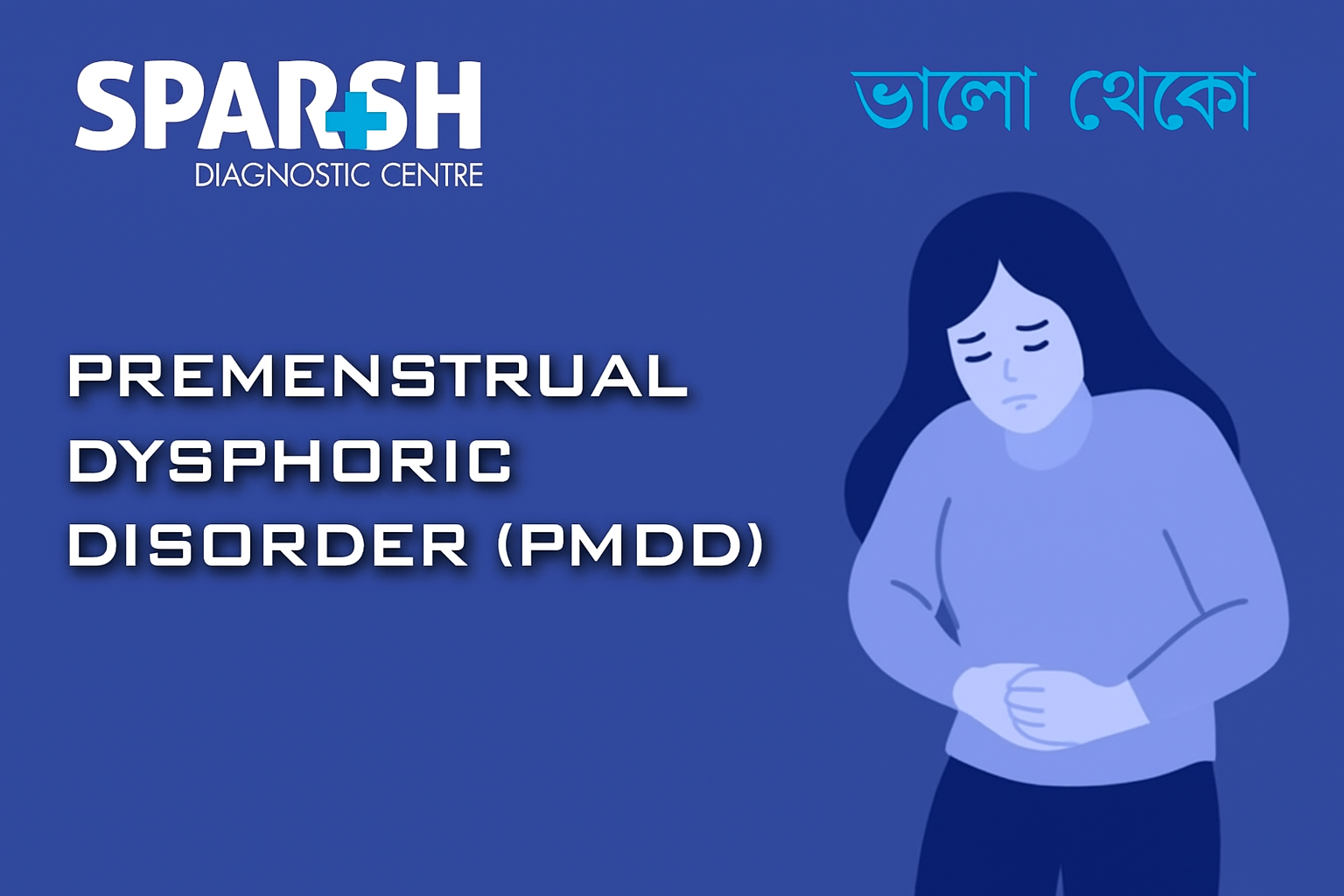Premature Ovarian Insufficiency (POI), also known as Premature Ovarian Failure (POF), is a condition in which the ovaries stop functioning normally before the age of 40. It affects approximately 1% of women under 40 and is a significant cause of infertility and long-term health complications. Unlike menopause, which is a natural and permanent decline in ovarian function typically occurring after age 45, POI can be intermittent and unpredictable. Women with POI may still have occasional periods and may even conceive in rare cases.
This comprehensive guide explores the causes, symptoms, diagnosis, and treatment of POI, as well as its impact on women’s health and quality of life.
What Is Premature Ovarian Insufficiency?
Premature Ovarian Insufficiency occurs when the ovaries fail to produce normal levels of estrogen or release eggs regularly. This results in irregular or absent menstrual periods, reduced fertility, and menopausal symptoms in young women.
The term “insufficiency” is preferred over “failure” because the ovarian function may not be completely lost and can fluctuate over time. Some women with POI may ovulate sporadically or even conceive naturally, although this is rare.
Causes of Premature Ovarian Insufficiency
The causes of POI are varied and often multifactorial. In many cases, the exact cause remains unknown. However, several known contributors include:
1. Autoimmune Disorders
Autoimmune conditions can cause the immune system to mistakenly attack ovarian tissue, leading to inflammation and damage. POI is commonly associated with:
2. Genetic Factors
Genetic abnormalities play a crucial role in POI. These include:
Fragile X premutation
Karyotype abnormalities
Non-coding RNA mutations
Mitochondrial gene defects
Nuclear gene mutations
3. Chemotherapy and Radiotherapy
Cancer treatments like chemotherapy and pelvic radiation can destroy or severely damage ovarian follicles, leading to POI. The risk depends on:
Age at treatment
Dosage and type of drugs/radiation used
4. Environmental and Lifestyle Factors
Exposure to toxins such as pesticides, cigarette smoke, and industrial chemicals may accelerate follicular depletion. Chronic stress, extreme weight loss, and poor nutrition also increase risk.
5. Infections
Viral infections such as mumps oophoritis (inflammation of the ovaries) have been linked to POI in some cases.
6. Idiopathic
In nearly 75-90% of cases, the cause of POI remains idiopathic or unknown.
Symptoms of Premature Ovarian Insufficiency
The symptoms of POI often mimic those of menopause, but they may present earlier and can fluctuate. Common symptoms include:
Vaginal dryness and painful intercourse
Mood swings, anxiety, or depression
Because these symptoms overlap with other conditions, POI is often misdiagnosed or diagnosed late.
Health Impacts of POI
Premature Ovarian Insufficiency affects much more than fertility. The long-term consequences can significantly affect physical and emotional health.
1. Infertility
One of the most devastating impacts of POI is infertility. The reduced or absent egg production makes natural conception difficult. Assisted reproductive technologies may offer hope for some women.
2. Menopausal Symptoms
Due to low estrogen levels, women with POI often experience classic menopausal symptoms such as hot flashes, vaginal dryness, and sleep disturbances.
3. Bone Health
Estrogen plays a key role in maintaining bone density. Women with POI are at higher risk for:
Increased fracture risk
4. Cardiovascular Disease
Estrogen protects the heart and blood vessels. POI increases the risk of:
5. Cognitive and Emotional Health
Low estrogen levels are associated with:
Mood disorders
Anxiety
Depression
Poor memory and cognitive decline
6. Metabolic Disorders
Women with POI may develop:
Diagnostic Criteria for POI
Diagnosis of Premature Ovarian Insufficiency involves a combination of clinical evaluation, laboratory tests, and imaging studies.
Diagnostic Criteria Include:
Menstrual disturbances: Amenorrhea or oligomenorrhea for at least 4 months
Low estrogen levels: Consistently low serum estradiol (<50 pg/mL)
Elevated FSH levels: >25 IU/L on two separate occasions, at least 4 weeks apart
Ultrasound findings: Absence of antral follicles in ovarian ultrasound
Other tests: Karyotyping, autoimmune panel, Fragile X screening, AMH (Anti-Müllerian Hormone) levels
Treatment and Management of POI
There is no cure for POI, but treatment focuses on managing symptoms, reducing health risks, and supporting fertility if desired.
1. Hormone Replacement Therapy (HRT)
Estrogen and progesterone replacement helps:
Alleviate menopausal symptoms
Maintain bone density
Protect cardiovascular health
HRT is typically continued until the natural age of menopause (~50 years).
2. Calcium and Vitamin D Supplements
Essential for bone health to prevent osteoporosis.
3. Fertility Treatment Options
In Vitro Fertilization (IVF) with donor eggs
Embryo donation
Ovarian tissue freezing (experimental/preventive)
Surrogacy
4. Emotional and Psychological Support
Counseling or therapy can help women cope with the emotional challenges of infertility and early menopause.
5. Healthy Lifestyle
Avoid smoking and alcohol
Regular weight-bearing exercise
Balanced diet rich in calcium and protein
Stress management techniques like yoga or meditation
Living with POI
Living with POI can be challenging both physically and emotionally. Support from healthcare professionals, family, and peer support groups can make a significant difference. Women are encouraged to:
Stay informed about their condition
Attend regular follow-ups
Get screened for bone and heart health
Seek fertility counseling early
Frequently Asked Questions (FAQs)
1. Can you still get pregnant with POI?
Yes, but it’s rare. Around 5-10% of women with POI may conceive naturally. Most will require fertility treatments or donor eggs.
2. Is POI the same as early menopause?
Not exactly. In POI, ovarian function may be intermittent and spontaneous ovulation may occur. Early menopause is permanent cessation of menses before age 45.
3. Is POI genetic?
Yes, in many cases. Fragile X premutation and Turner syndrome are known genetic causes. A family history of early menopause increases the risk.
4. Can POI be reversed?
There is currently no known cure. However, ovarian function may occasionally return, and symptoms can be managed effectively.
5. When should I see a doctor?
If you are under 40 and have irregular periods or fertility concerns, see a gynecologist or endocrinologist for evaluation.
POI and Early Diagnosis: Why It Matters
Early diagnosis of POI is crucial. The sooner it is detected, the better the outcomes in terms of:
Preventing bone loss
Managing cardiovascular risks
Planning fertility preservation
Addressing emotional and mental health challenges
Delayed diagnosis can lead to irreversible damage such as severe osteoporosis or emotional trauma due to unexpected infertility.
Premature Ovarian Insufficiency is a serious condition that affects a woman’s reproductive, emotional, and physical health. While it may be distressing to receive a diagnosis of POI, understanding the condition can empower women to take control of their health. With timely diagnosis, medical treatment, and emotional support, it is possible to manage the symptoms and lead a fulfilling life.
If you or someone you know is experiencing symptoms of POI, consult a healthcare provider for evaluation and management. Sparsh Diagnostic Centre provide specialized tests, including hormone panels and pelvic ultrasound, to help diagnose and monitor POI effectively.
Need help with POI diagnosis or treatment?
📍 Visit Sparsh Diagnostic Centre
📞 Call/WhatsApp: 9830117733 / 8335049501
🕖 Open Mon–Sat: 7 AM–9 PM | Sun: 7 AM–3 PM
#BhaloTheko
Disclaimer:
No content on this site, regardless of date, should ever be used as a substitute for direct medical advice from your doctor or other qualified clinician.

![]()







[…] Premature Ovarian Insufficiency (POI): POI, also known as premature ovarian failure, is a condition in which a woman’s ovaries stop functioning normally before the age of 40. This leads to irregular or absent periods and can cause anovulatory cycles. POI may be caused by genetic factors, autoimmune diseases, or environmental toxins. […]
[…] Primary ovarian insufficiency (POI) […]
[…] 5. Premature Ovarian Insufficiency (POI) […]
[…] Premature ovarian insufficiency (POI): Also known as premature menopause, this condition occurs when a woman’s ovaries stop functioning normally before the age of 40, leading to reduced or no egg production. […]
[…] suggest a good ovarian reserve, while low levels may indicate diminished ovarian reserve (DOR), premature ovarian insufficiency (POI), or an impending decline in […]